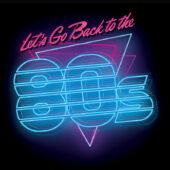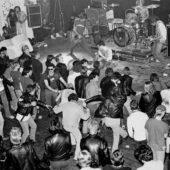Recording Academy Renames Best Song for Social Change Award in Honor of Harry Belafonte

The Recording Academy has renamed its two-year-old Best Song for Social Change Special Merit Award in honor of the late Harry Belafonte, who was a powerful voice for social justice throughout his career. The award will henceforth be known as the Harry Belafonte Best Song for Social Change Award. It will continue to honor songwriters of message-driven music that speaks to the social issues of our time and has demonstrated and inspired positive global impact.
“The greatness of Harry Belafonte’s artistic legacy is matched by his profound impact of furthering social justice for all,” Harvey Mason jr., CEO of the Recording Academy, said in a statement. “We are honored to recognize his lasting influence with the Harry Belafonte Best Song for Social Change Award and to continue celebrating works that have inspired global communities towards social impact.”
Trending on Billboard
“The Belafonte estate is deeply honored and thrilled that the Recording Academy’s Best Song for Social Change Award will now be named the Harry Belafonte Best Song for Social Change Award,” said Belafonte’s daughters Adrienne, Shari and Gina and his third wife, Pamela, in a joint statement. “This recognition not only celebrates Harry Belafonte’s enduring legacy in music and activism, but also inspires future generations to continue using their voices and art for justice and positive change.”
The Recording Academy generally doesn’t name awards after individuals, though it in recent years introduced the Dr. Dre Global Impact Award (which was presented to Dre on the Grammy telecast in 2023 and to Jay-Z on this year’s telecast).
Many have forgotten that the academy’s lifetime achievement award was originally called the Bing Crosby Award. The legendary crooner was the first recipient in 1963. There were seven other recipients through 1972. The award wasn’t presented for the next 12 years, but when it returned in 1984, seven years after Crosby’s 1977 death, the academy had quietly dropped Crosby’s name from the award so that it wouldn’t be tied to any one artist or genre.
Formerly a Special Merit Award, the Harry Belafonte Best Song for Social Change Award will now be categorized as a CEO’s Merit Award, with the finalists and the recipients selected annually by a committee composed of a community of peers dedicated to artistic expression, the craft of songwriting and the power of songs to affect social change.
The first two winners of the award, under its former name, were “Baraye” by Shervin Hajipour (2023) and “Refugee” by K’naan, Gerald Eaton and Steve McEwan (2024).
The submission period for the current cycle of the Harry Belafonte Best Song for Social Change Award is July 17 – Aug. 30, 2024. For guidelines and to make a submission, visit www.Grammy.com.
From his debut in the 1950s until his death in 2023 at age 96, Belafonte’s artistic career progressed on a parallel track with his work as a trailblazing activist. A friend of Rev. Dr. Martin Luther King Jr. and an advisor, organizer and contributor to the civil rights movement, Belafonte helped to organize the 1961 March on Washington for Jobs and Freedom, and contributed to the 1961 Freedom Rides and the Mississippi Freedom Summer of 1964. Belafonte performed at President John F. Kennedy’s inaugural ball in 1961 and was later named by Kennedy as a cultural advisor to the Peace Corps.
An advocate for global humanitarian causes including the anti-apartheid movement, Belafonte, in 1985, was a key organizer for USA for Africa’s benefit single “We Are the World,” which raised money for famine relief in Africa. The song topped the Billboard Hot 100 for four weeks and won four Grammy Awards, including record and song of the year. Belafonte became a UNICEF Goodwill Ambassador in 1987 and traveled internationally to raise awareness for the needs of children across sub-Saharan Africa.
Belafonte won two Grammy Awards – both in folk categories, for “Swing Dat Hammer” and An Evening With Belafonte/Makeba, a collab with South African singer Miriam Makeba.
Belafonte was not the first Black artist to receive a Grammy nod for album of the year – Ella Fitzgerald was, at the very first Grammy ceremony, for Ella Fitzgerald Sings the Irving Berlin Songbook. But Belafonte was the first Black artist to receive two Grammy nods for album of the year. He was nominated at the second and third ceremonies for Belafonte at Carnegie Hall and Belafonte Returns to Carnegie Hall.
In addition, he had the first No. 1 album on the Billboard 200. His sophomore album, Belafonte, was No. 1 in March 1956 when the chart became a consistent weekly feature in Billboard. (Prior to that, it had appeared sporadically.) Belafonte’s third album, Calypso, remained atop that chart for 31 weeks in 1956-57.
Belafonte received the Recording Academy’s lifetime achievement award in 2000. Three of his recordings are in the Grammy Hall of Fame – “Banana Boat (Day-O)” (1956) and the albums Calypso (1956) Harry Belafonte at Carnegie Hall (1959).
His many other awards include the Kennedy Center Honors (1989) and induction into the Rock and Roll Hall of Fame as an early influence in 2022.

















